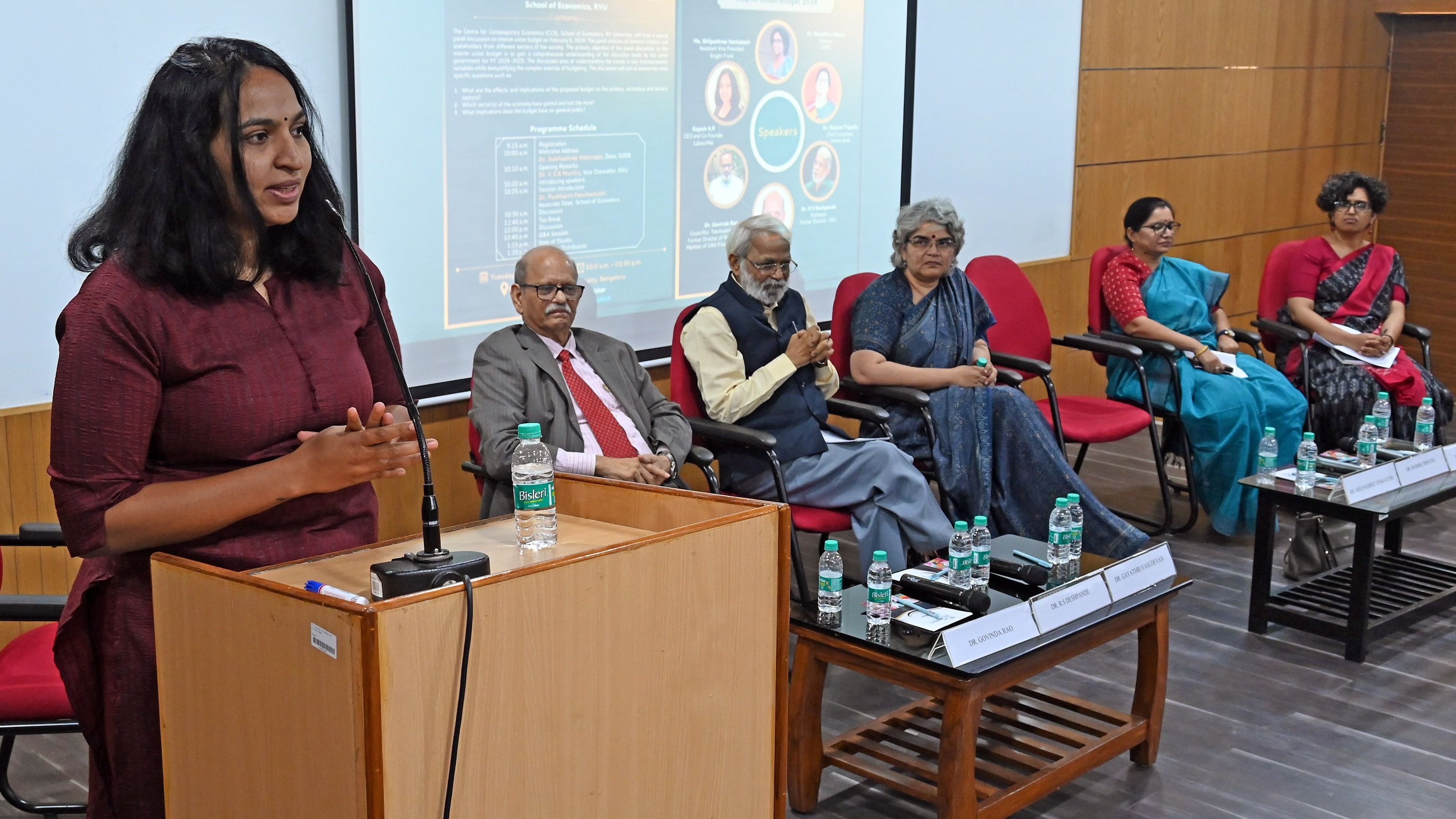
Bengaluru: Economists and scholars from different sectors dissected the impact of the interim Union budget, presented on February 1, at a panel discussion organised by the Centre for Contemporary Economics, School of Economics, RV University, on Tuesday.
They emphasised the need for an inclusive and sustainable budget, tackling issues faced by the country at hand, and noted that although investment in some sectors is good, skill-building efforts and jobs must match the budget allocation.
“The education and health sectors are not getting the focus they need. We need to move towards an outcome-focused budget and look at budgets from a gender and disability perspective,” said Prof (Dr) YSR Murthy, Vice-Chancellor, RV University.
While Dr Govinda Rao, councillor, Takshashila Institution, noted that redistribution via direct cash transfer was better than providing subsidies, because the latter can “alter relative prices, creating unintended distortions”, Gayathri Vasudevan, Chairperson, LabourNet, emphasised that greater budget allocations did not necessarily translate into growth in jobs for the rural sector.
“Fifty lakh farmers left agriculture between 1991 and 2011. This should have at least been noted (in the interim budget),” said Dr RS Deshpande, professor and former director of Institute for Social and Economic Change. He added that the size of land holdings and net incomes of farmers are falling, and technology inputs are not being adopted as much in the agriculture sector, while budget allocations are not increasing accordingly, all of which are issues that need to be addressed.
Calling the budget document a “ritualistic political statement”, Dr Niveditha Menon, Director, Centre for Budget and Policy Studies, noted that with no recent data from the National Sample Survey Office (NSSO) or the Census, there is no current evidence to support budgetary allocations to various sectors.
“Does the budget address inequality of access, mobility, and power? If we have to address these, we need a greater investment in basic infrastructure and social sector spending, and not just in public sector schemes,” she said.
Shilpashree Venkatesh, Assistant Vice-President, Knight Frank, and Dr Rashmi Tripathi, Chief Economist, Canara Bank, also explained how budgetary allocations helped augment the investments into the private and the banking sectors, respectively.